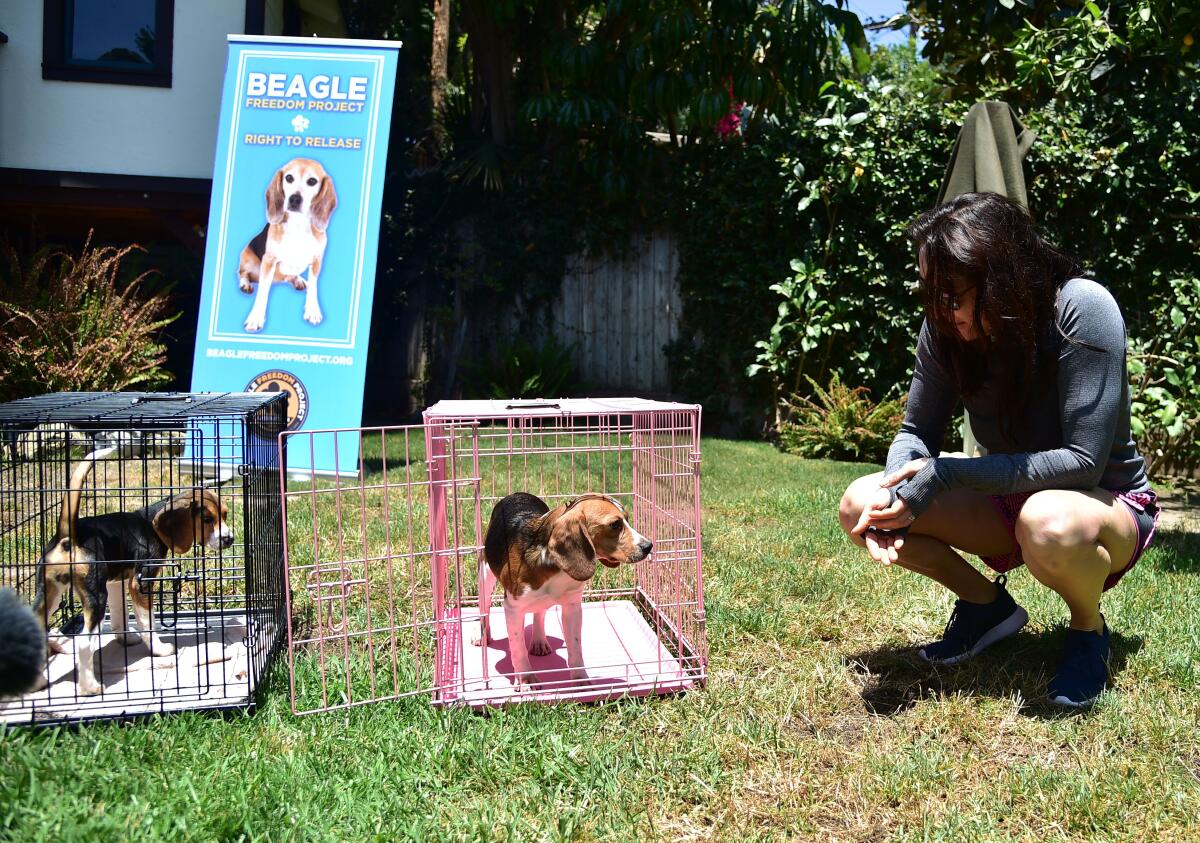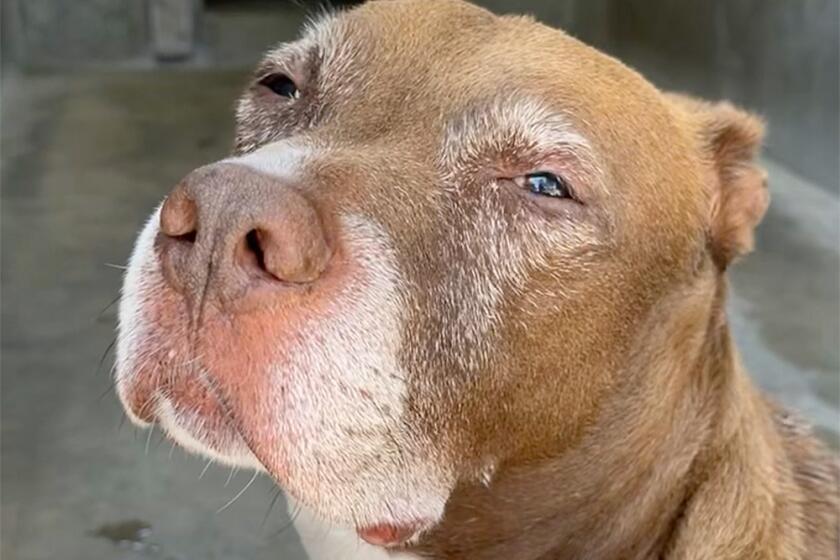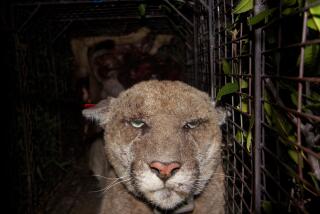California bans unnecessary pesticide, chemical testing on dogs and cats

- Share via
California will ban the testing of harmful chemicals on dogs and cats, effectively becoming the first state in the U.S. to remove the option for companies seeking to learn about the harmful effects from their products.
Gov. Gavin Newsom signed the bill into law Monday along with several other bills aimed at protecting animal welfare in the state. The law goes into effect Jan. 1.
State Sen. Scott Wiener (D-San Francisco) authored Senate Bill 879, which bans unnecessary toxicity testing that exposes dogs and cats to industrial and consumer products. Products tested on animals include pesticides, chemical substances and food additives, Wiener said.
“For many families, including my own, pets are beloved companions that enrich our lives every day,” Newsom said in a statement. “I’m proud to sign this legislation to advance our state’s leadership on animal welfare by ending cruel and unnecessary testing on dogs and cats, among other measures to protect the health and safety of pets in California.”
L.A. Animal Services recently began allowing volunteers to handle dogs — sometimes abused or neglected — who are considered evidence in legal cases and spend months or even years at a shelter.
Testing involves exposing animals to products to better understand what harms can be expected when they are used by humans. But the process is often painful for animals, according to the nonprofit Physicians Committee for Responsible Medicine. The testing includes observing animals for toxic effects over an extended period of time, including vomiting, diarrhea, convulsions, death and other serious side effects. Some animals are bred specifically to be exposed to harmful products in laboratory settings, according to Wiener’s office.
The Prohibiting Extraneous Testing Act will not apply to products intended for use on dogs and cats including medicines, such as anesthesia and cancer treatment. It is the first of its kind in the country.
“Animal testing that has no scientific value and causes terrible pain and suffering is inhumane, unnecessary, and cruel,” Wiener said in a statement. “The PET Act protects cats and dogs from this type of testing, and helps these animals live long, healthy lives.”
Is it possible to humanely experiment on beagles (or cats, monkeys, mice and fish)? Activists and researchers disagree.
The most recent example of animal testing involved 4,000 beagles bred in captivity at a research facility in Virginia. The dogs were living in unsafe conditions at an Envigo RMS facility. A sizable number of those dogs have since been relocated to California, said Kitty Block, chief executive of the Humane Society of the United States.
“As we celebrate California becoming the first state in the nation to prohibit certain testing on dogs and cats, we extend our gratitude to Governor Newsom for signing The PET Act, SB 879, into law,” Block said in a statement. “Almost 500 beagles recently arrived in California after our organization led a historic effort to remove nearly 4,000 beagles from a mass breeding facility that sold dogs to laboratories for experimentation.”
Animal rescue and advocacy groups say the type of testing done on dogs and cats is ineffective at indicating harmful effects in humans. About 60,000 dogs each year are used in government, university, commercial and private industry laboratories, according to the Humane Society.
More to Read
Sign up for Essential California
The most important California stories and recommendations in your inbox every morning.
You may occasionally receive promotional content from the Los Angeles Times.













